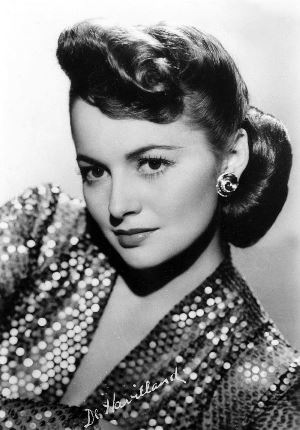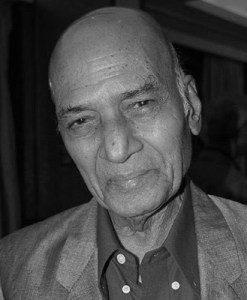A couple of months back, a blog reader had remarked that Hindi cinema, during the 1930s and 40s, seemed to have a fairly unimpressive-looking lot of leading men. The good-lookers, was the theory, were the ones that came later, though there had been a very few rare exceptions, like Shyam.
While I didn’t agree that most of the leading men of the 1930s and 40s were ugly (or at best, plain), I did agree about Shyam. Shyam was one of those very handsome actors who, with his impressive height and build added to his charisma, could have posed a serious threat to the triumvirate of Dilip Kumar, Raj Kapoor, and Dev Anand. Sadly, Shyam died tragically young, just 31 years old, after sustaining a head injury caused by a fall from a horse during the shooting of Shabistan in 1951.
Born in Sialkot on February 20, 1920, Shyam Sunder Chadha ‘Shyam’ debuted in a Punjabi film, Gowandhi (1942) and continued to work sporadically in cinema over the next few years. After Partition, Shyam shifted to Bombay, and that was when his career really took off. Over the next four years, he worked in a slew of films, including some big hits like Dillagi, Samadhi, and Patanga. One can only speculate on what trajectory his career might have taken had he lived into the 60s. (Interestingly, Shyam was a very dear friend of Sa’adat Hasan Manto: it was a friendship that outlasted Partition, and Manto was deeply affected when Shyam passed away).
I hadn’t realized, back in February this year, that it was Shyam’s hundredth birth anniversary. But the year is still the same, so in celebration of Shyam’s birth centenary year, a review of one of his biggest hit films. In Dillagi, Shyam acted the role of Swaroop, a dashing young man who falls in love with a village girl named Mala…
Continue reading →










